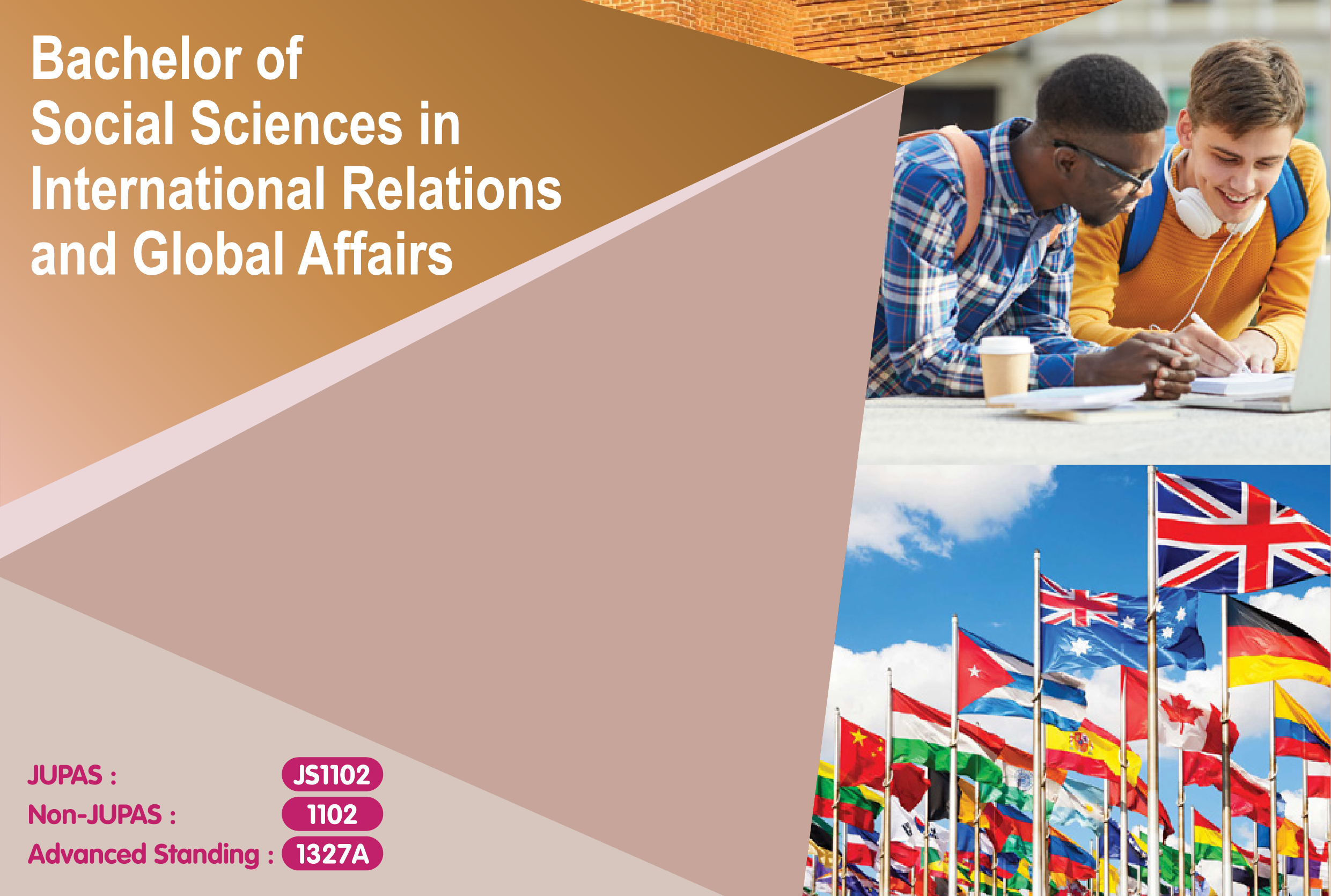BSocSc International Relations and Global Affairs

1327A
Local Places:
20 (For First Year and Advanced Standing I Entries; Tentative)*
Non-Local Places
(For Overall Direct Applications):
Around 400
* for JUPAS and non-JUPAS admissions
This major is the first and only program in Hong Kong to focus on the increasingly important Asian region in this Asian age.
It strengthens students’ international perspectives.
It is staffed by scholars conducting field-based research in Asian countries and provides students with up-to-date and in-depth regional knowledge.
It features opportunities for students to join overseas exchange programs and field trips to different countries in and beyond Asia to broaden their horizons.
PIA’s internship program offers on-site job training in a number of fields, such as non-government organizations, marketing and research firms, private companies, media sectors, political parties and policy consultancy agencies.
Entrance Requirements for Direct/Non-JUPAS Applicants
To be considered for admission, you must satisfy the General Entrance Requirements.
For details of the program’s curriculum structure, please visit the Undergraduate Catalogue.
The Department of Public and International Affairs is a multidisciplinary department with a multinational faculty and a strong international orientation. With faculty members graduating from many of the world’s top universities and with a commitment to leading edge research and high quality teaching, the Department can lay a strong claim to be the leading department in its field in the region.
This major explores Asia’s significance in contemporary world politics and Hong Kong’s strategic positions within China, Asia and the world. It aims to develop students’ knowledge of the socio-political, economic and cultural changes occurring in Asian countries and to situate them in the broader international context. Students will learn to contemplate Asia's increasingly significant roles in world affairs and examine these roles with both theoretical and practical analytical tools. Through its interdisciplinary curriculum and social research training, the major seeks to equip students with analytical skills that are of great value to organizations in different administrative and economic sectors throughout Hong Kong, Asia and beyond. In addition, it enhances students’ critical reasoning and problem-solving skills, and will deepen their regional and global perspectives.
This major emphasises good knowledge and analytical skills in local, regional and global issues and training to enhance students' oral and written skills. It offers both theoretical thinking and practical analytical perspectives.
Core components
- Courses on the foundations of social sciences
- Courses on social research methods
- Courses on Asian societies
- Courses on international and development studies
- Courses on environment and globalization
The major offers three specialized streams: Asian Studies, International Studies and Development Studies. Students are encouraged to choose electives based on their interests. Elective courses include HK and China studies, specific regional, international and development topics, problem-based studies, migration issues and youth politics. All courses strengthen students’ practical skills and analytical abilities.
This major aims to develop vital human resources that are of strategic importance to Hong Kong. It will develop your knowledge and skills, and broaden and deepen your international and regional perspectives to prepare you for a career in government, social and commercial sectors. Graduates are employable in a wide variety of occupational fields, including social research, market research, journalism and mass media, political groups, public relations, commerce, project-planning and management, social enterprises and non-government organizations.
Our graduates have obtained jobs in teaching positions at all levels, as well as jobs in the private sector, such as editors, non-governmental organization workers, journalists, public-relations personnel, researchers, management trainees, etc.
When necessary









